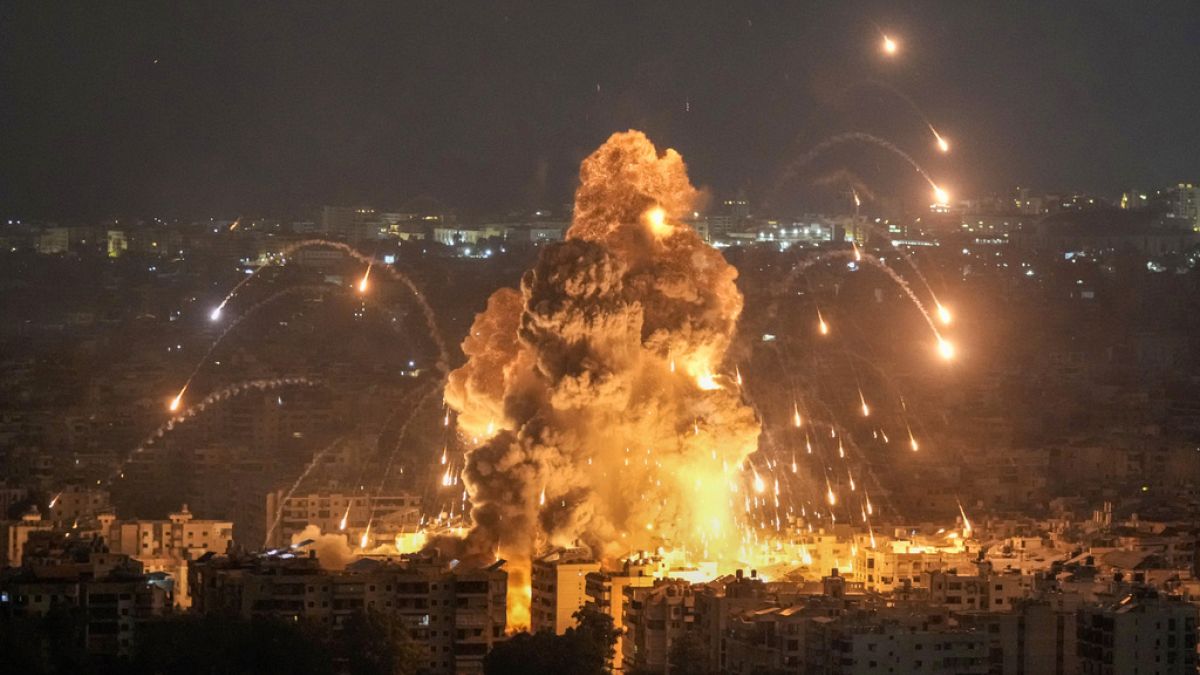Israel has vowed to retaliate against Iran following a missile strike on its territory, despite US President Joe Biden’s urging for caution in a recent call with Israeli Prime Minister Benjamin Netanyahu. Israel’s Defence Minister Yoav Gallant has warned that the retaliation will be “lethal,” with plans to catch Iran off guard. The strike came after Israel intensified its airstrikes across Lebanon, resulting in Iran firing almost 200 missiles into Israeli territory. This escalation has caused tensions to soar in the Middle East, with no signs of slowing down from Israel’s side.
In response to the missile strike, Gallant made a speech to Israeli troops, stating that Iran will not understand how the planned retaliation will unfold. The Iranian missile strike was triggered by Israel’s airstrikes across Lebanon, which resulted in the killing of multiple senior commanders of the Iran-backed militant group Hezbollah, including its leader Hassan Nasrallah. The Israeli Defence Forces have also launched a “limited” ground invasion into southern Lebanon. Israeli Prime Minister Benjamin Netanyahu has vowed to respond to the Iranian strike, although he has not confirmed the details of how or when this response will take place. This further escalation of conflict has raised concerns globally, including from US President Joe Biden, who has urged caution in retaliation.
Despite Biden’s calls for a ceasefire deal between Israel and Hamas, Netanyahu has continued to intensify attacks, ignoring calls for a temporary pause in fighting. The recent call between Biden and Netanyahu, the first in seven weeks, saw the US President congratulating Israel on its determined operations against Hezbollah. There are fears that a strike on Iran by Israel could have a negative impact on the global oil market and potentially influence Biden’s upcoming election campaign. Netanyahu’s persistence in ignoring calls for cease-fires and escalating attacks in Lebanon and Gaza has garnered criticism worldwide.
The ongoing conflict has had devastating effects, with dozens killed in strikes across Gaza and southern Lebanon. The death toll from the yearlong conflict has surpassed 42,000, with no distinction made between militants and civilians by the Palestinian Health Ministry. Israel’s military spokesperson Daniel Hagari has noted that Israeli forces are continuing their operations in Gaza to prevent Hamas from regrouping. The situation remains volatile, with no signs of de-escalation from either side as tensions continue to rise in the region.
As the conflict intensifies, Netanyahu’s refusal to heed calls for a ceasefire and continue with military operations has raised concerns globally. The recent call between Biden and Netanyahu highlighted the escalating tensions, with the US President urging caution in any retaliatory strikes against Iran. The situation in the Middle East remains fragile, with fears of further escalation and potential impact on global stability. The ongoing conflict between Israel and Iran-backed groups like Hezbollah has resulted in a significant loss of life and destruction, with no clear resolution in sight as both sides remain steadfast in their positions. The international community is closely monitoring the situation, hoping for a peaceful resolution to avoid further bloodshed and instability in the region.











